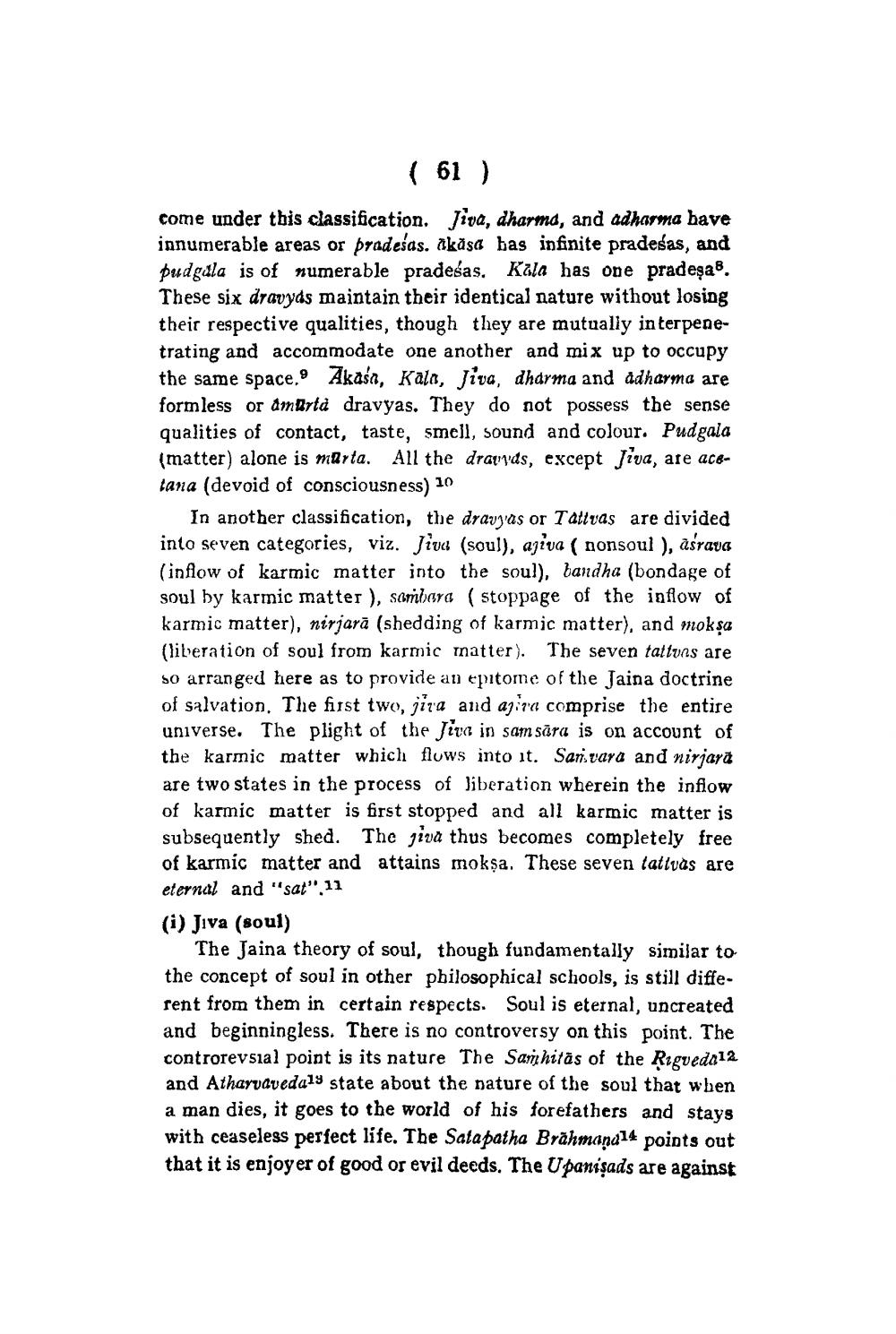________________
( 61 )
come under this classification. Tiva, dharma, and adharma bave innumerable areas or pradesas. akåsa has infinite pradesas, and pudgala is of numerable pradeśas. Kala has one pradeşa8. These six dravyds maintain their identical nature without losing their respective qualities, though they are mutually in terpenetrating and accommodate one another and mix up to occupy the same space. 9 Akasa, Kala, Jiva, dharma and adharma are formless or amarta dravyas. They do not possess the sense qualities of contact, taste, smell, sound and colour. Pudgala (matter) alone is mbrta. All the dravids, except Jiva, are acetana (devoid of consciousness) 10
In another classification, the dravjas or Tattvas are divided into seven categories, viz. Jiva (soul), agiva ( nonsoul ), asrava (inflow of karmic matter into the soul), bandha (bondage of soul hy karmic matter ), sambara ( stoppage of the inflow of karmic matter), nirjarā (shedding of karmic matter), and moksa (liberation of soul from karmic matter). The seven tattoos are so arranged here as to provide an epitome of the Jaina doctrine of salvation. The first two, jira and agire comprise the entire universe. The plight of the Jita in samsāra is on account of the karmic matter which fluws into it. San vara and nirjara are two states in the process of liberation wherein the inflow of karmic matter is first stopped and all karmic matter is subsequently shed. The jiva thus becomes completely free of karmic matter and attains mokşa. These seven tattvas are eternal and "sat" 11 (i) Jiva (soul)
The Jaina theory of soul, though fundamentally similar to the concept of soul in other philosophical schools, is still different from them in certain respects. Soul is eternal, uncreated and beginningless. There is no controversy on this point. The controrevsial point is its nature The Sanhitās of the Rigvedala and Atharvavedals state about the nature of the soul that when a man dies, it goes to the world of his forefathers and stays with ceaseless perfect life. The Satapatha Brahmana14 points out that it is enjoyer of good or evil deeds. The Upanişads are against




